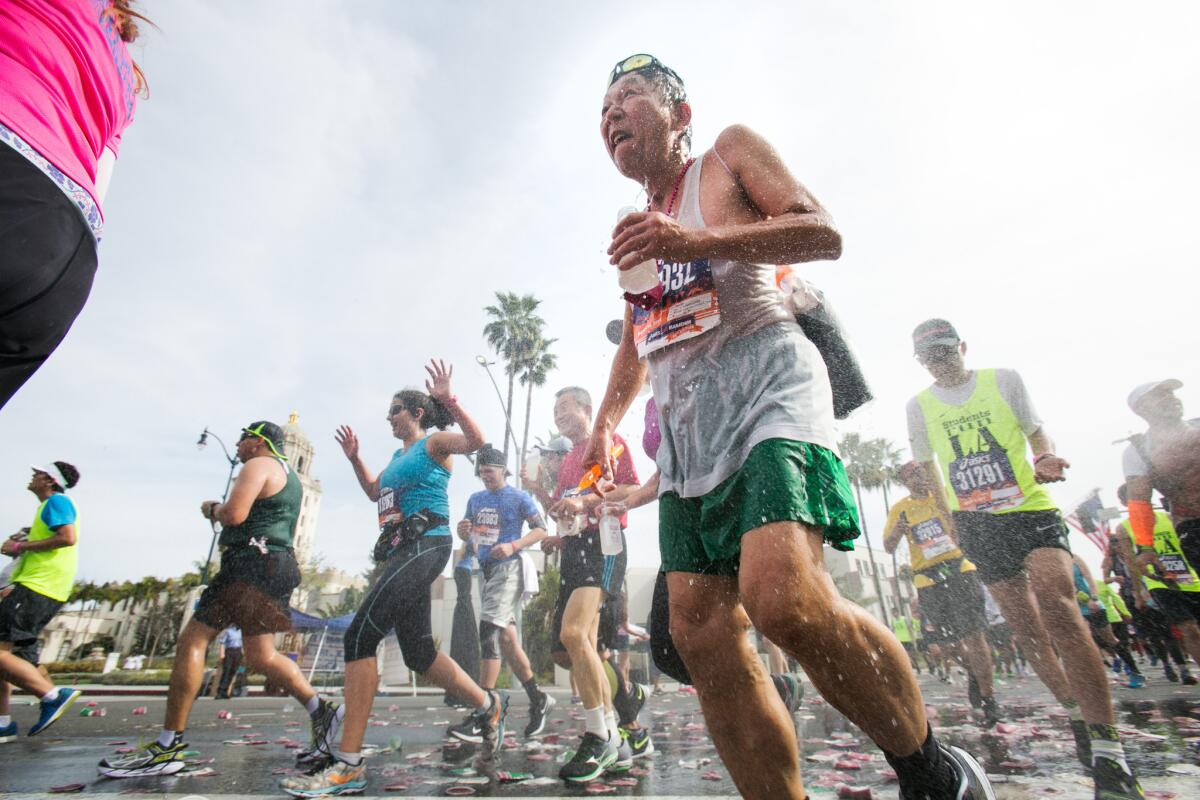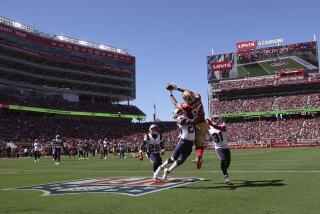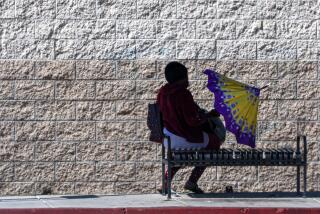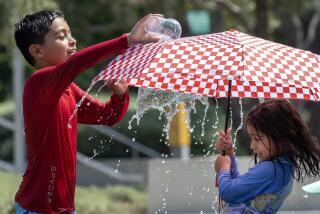Runners in the Olympic Trials and L.A. Marathon will be up against unusual winter heat

Los Angeles Marathon runners revel under a cold spray of water at the water station at mile marker 16 in Beverly Hills during the 2015 race. More than 30 people were hospitalized because of the heat.
L.A. Marathon organizers had hoped to avoid the kind of run-in with warm weather that could lead to heat exhaustion and dehydration.
For the second year in a row, they moved up the starting time to give runners more time to enjoy the cool morning air. And they are holding the marathon weeks earlier than normal, which would ideally line up with cooler seasonal temperatures.
But despite the changes, Mother Nature isn’t cooperating. Temperatures are expected to be in the 80s on Saturday for the Olympic trials and again on Sunday for the traditional marathon – both unseasonably warm.
“I get concerned once we get over the 75 [degree] mark. That’s when people need to start paying attention,” said Dr. Glenn Ault, medical director for the L.A. Marathon and associate professor of surgery at USC. “Most important is listen to your body and know when your body is telling you it’s got a problem.”
It was 90 degrees at the finish line of the 2015 L.A. Marathon, a race that sent more than 30 people to the hospital, Ault said. He expects a similar result for this year’s race. Runners should rotate between drinking water and Gatorade during the race, he said.
Because Saturday’s Olympic Trials race begins at 10:06 a.m. – more than three hours later than the start of Sunday’s open race – it will end in the midday sun. Those are weather conditions even elite marathoners aren’t accustomed to.
As a result, the race is likely to be a slow, tactical affair with few runners willing to risk buckling in the heat.
In recent weeks some of the approximately 375 runners entered in Saturday’s race moved to hot-weather training sites such as Florida and San Diego to prepare for the conditions.
“A heat-acclimated runner can expect to perform 2 to 3% better in a warm marathon, and up to 5% better if the weather turns even hotter,” Douglas Casa, a heat physiology expert and chief executive of the Korey Stringer Institute at the University of Connecticut, told Runner’s World magazine.
But the warm temperatures could also help the U.S. choose a more competitive team for Rio de Janeiro, where August temperatures are expected to be in the high 70s. Eight years ago in Beijing the men’s Olympic marathon was run in conditions that were so hot, humid and smoggy that only one athlete covered the second half of the race faster than the first.
But while the weather will affect how the trials race is run, it won’t pose the same health risks for elite marathoners as it would for others since they are not only superbly conditioned but also more attuned to their bodies’ response to harsh conditions, experts say.
For breaking California news, follow @JosephSerna.
ALSO
Summer in February? L.A. heat records broken for 2nd straight day
L.A. city, county OK homeless plans, but where will the money come from?
Family of Venice homeless man fatally shot by LAPD files wrongful death lawsuits
More to Read
Sign up for Essential California
The most important California stories and recommendations in your inbox every morning.
You may occasionally receive promotional content from the Los Angeles Times.












